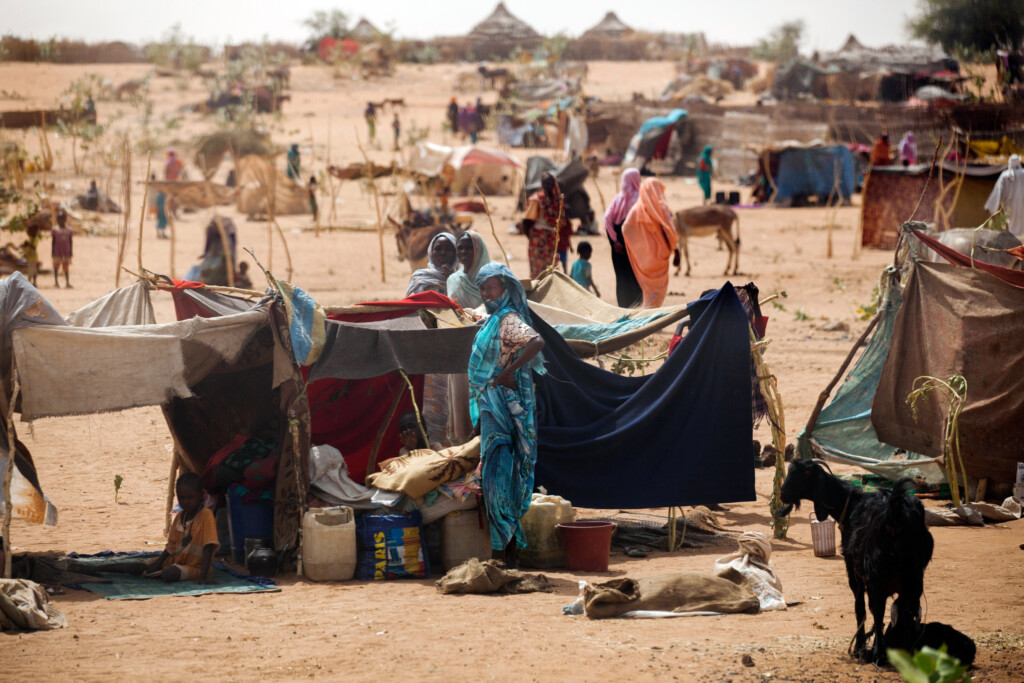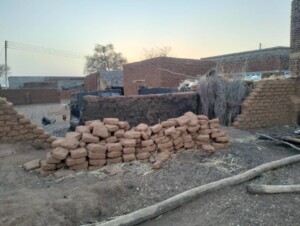Sudan’s crisis casts grim shadows as violence, cholera, and displacement rise

Zamzam camp for the displaced near El Fasher in 2014, during the civil war (File photo: Albert González Farran / UNAMID)
Sudan’s humanitarian situation worsened dramatically in June and July 2025, with mounting violence, a deadly cholera outbreak, and mass displacement, according to recent reports from the African Centre for Justice and Peace Studies (ACJPS), the UN Office for the Coordination of Humanitarian Affairs (OCHA), and UN spokesperson Stéphane Dujarric.
Over 500,000 people were newly displaced in June alone, pushing the total to more than two million since April 2023. In their report posted yesterday, the ACJPS called it “one of the world’s most severe humanitarian emergencies,” marked by widespread violations.
The paramilitary RSF withdrew from Khartoum but entrenched themselves in West Kordofan and in the El Uweinat area, at the border triangle connecting Sudan, Libya, and Egypt, while governance and judicial systems collapsed nationwide. The Sudanese Lawyers’ Union condemned new fees on criminal cases as unjust.
Attacks in North Kordofan’s Shaq El Noum reportedly perpetrated by the RSF, killed over 300 civilians, according to recent metrics in the OCHA report, published today. Kadugli in South Kordofan remains cut off from aid amid worsening fighting and hunger. Armed groups attempted to seize food from markets, highlighting desperation.
Torrential rains and flooding in West Darfur have blocked roads, threatening to isolate towns sheltering thousands of displaced people.
Cholera has infected over 91,000 people in 17 states, killing at least 2,300. WHO warned of a looming health catastrophe without humanitarian corridors and ceasefires, especially in besieged El Fasher, capital of North Darfur.
A vaccination campaign in Khartoum cut daily cases from 1,500 to under 30, but funding gaps risk stalling progress. OCHA reports only 23 per cent of 2025 funding needs met, leaving a $3 billion shortfall.
Radio Dabanga reported last week Sudan’s childhood immunisation rate has fallen to 48 per cent, the lowest in 40 years, according to the World Health Organisation and the UN Children’s Emergency Fund (UNICEF), leaving 880,000 infants at risk of diseases like tetanus and diphtheria.
In a briefing yesterday, UN spokesperson for the Secretary-General, Stéphane Dujarric, said worsening conditions and funding shortfalls severely hamper aid, with community kitchens in North Darfur at risk of closure.
He urged “unimpeded humanitarian access, more funding, protection for civilians and aid workers, and an immediate end to hostilities.”
Returnees to El Gezira are facing widespread devastation. Osman Bashir Mohammed Ali told OCHA, “We took only what we could carry… I don’t know how to start again. This place… it’s unrecognisable.”











 and then
and then